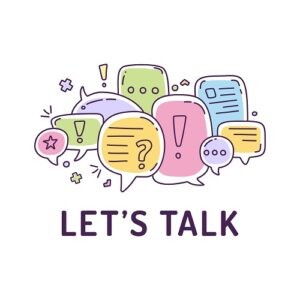It’s your responsibility to drive the car safely and get your child to their destination. That means being in control in the driving seat and helping your child get to where they want to be and achieve the best they can.
As a driver on this SEND journey you’ll need to do some key things.
These key things are important in every meeting you go to as well.

How you drive, how you respond to other drivers and how you prepare all make a big difference to your journey.
These principles apply to the meetings you have too. How you are in the meeting, how you respond to other people and how well you prepare make a difference to how well it’s going to go.
These are some of the things that parents say help them manage before and during meetings.
 Keep your eyes open for possible hazards. Everyone at a meeting will have some ‘uninvited guests’. These are your feelings, your past experiences and what you’re expecting to happen at the meeting. If you’ve had poor experiences of meetings before or if just being in school makes you feel uncomfortable, all of these can affect how you walk into the meeting. Professionals may well bring these feelings too. We all have emotional baggage with us and that can affect how successful the meeting is. It helps if you can recognise that, and deal with them in the long term in another way than in the meeting. You could talk to the person leading the meeting about any worries you have and ask them to make the meeting as accessible for you as possible. We have some top tips about managing difficult conversations that can help you prepare, if you think a meeting is likely to be challenging.
Keep your eyes open for possible hazards. Everyone at a meeting will have some ‘uninvited guests’. These are your feelings, your past experiences and what you’re expecting to happen at the meeting. If you’ve had poor experiences of meetings before or if just being in school makes you feel uncomfortable, all of these can affect how you walk into the meeting. Professionals may well bring these feelings too. We all have emotional baggage with us and that can affect how successful the meeting is. It helps if you can recognise that, and deal with them in the long term in another way than in the meeting. You could talk to the person leading the meeting about any worries you have and ask them to make the meeting as accessible for you as possible. We have some top tips about managing difficult conversations that can help you prepare, if you think a meeting is likely to be challenging.Children and young people have the right to be involved in decisions about their education and the support they get. Local authorities, schools and colleges must listen to what they have to say and take it into account, and the law says they must involve them in the decisions they make.
It’s important for your child or young person to be at the centre of things. they should be able to share their views with professionals and have them properly listened to and acted on. It’s a powerful thing, and when it’s done well it can make a huge difference to everyone, not least your child. Support that works well is based on what your child does well (their strengths) and what their hopes and goals are.

As your child grows older and becomes a young adult, they’ll become more independent. For most young people that means taking more control over what happens in their lives. Your role changes too – usually, you will have less and less control! So, gradually helping your child to be more involved is an important process in preparing them to become an adult. To go back to the idea of driving and being on a journey, one day your child will probably learn to drive, and they will sit in the driver’s seat – you’ll be the passenger!
Every child has a voice and something to say, but the challenge can sometimes be how to help them express themselves. Even if your child can’t speak, their views, opinions, likes and dislikes are still very important. It’s up to the adults that support that child to find ways that will help them share their views and ideas.
You might be best placed to do that, but sometimes a teacher, teaching assistant, enabler or friend may help your child to give a different view. We have tips and tools to help you support your child or young person to share their views in a meeting and outside it. DiAS also has children and young people’s workers who can directly help your child to share their views and have their say. Contact us to find out more.
Children and young people can and do go to meetings and as they get older and this is a good way for them to get involved in making decisions about their life. Some also like to know what everyone is talking about! But not everyone will want to or will be able to manage it. Meetings can feel overwhelming and sometimes be boring too.
Ask your young person to come to the start of the meeting for a few minutes if they want to be involved. It’s a good way to take part, see what the meeting is like and get to know why and how the meetings can help. They can talk about what’s working at school or college and what they need help with.
Talk about the idea that ‘you can’t always get what you want.’ You haven’t got a magic wand that will make everything better. But hearing what they have to say is the first step in helping them feel supported and understood in school or college.
Page reviewed: April 2024
Page due for review: April 2026
DiAS (Devon, Information, Advice and Support) supports children and young people aged 0-25 with special educational needs and disabilities (SEND), and their parents and carers.
Helpful links
Contact us
Legal
© 2025 Devon Information Advice & Support
Searching...